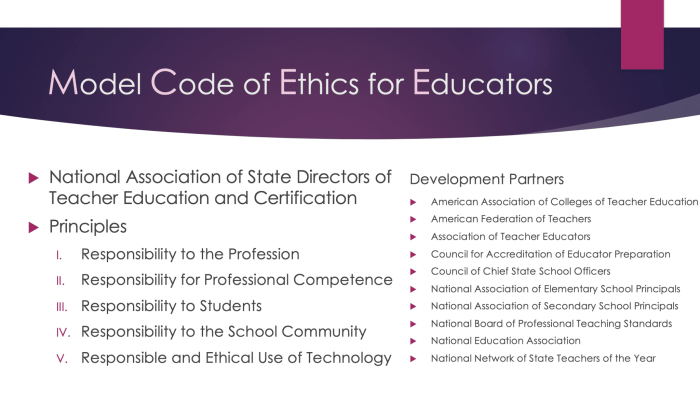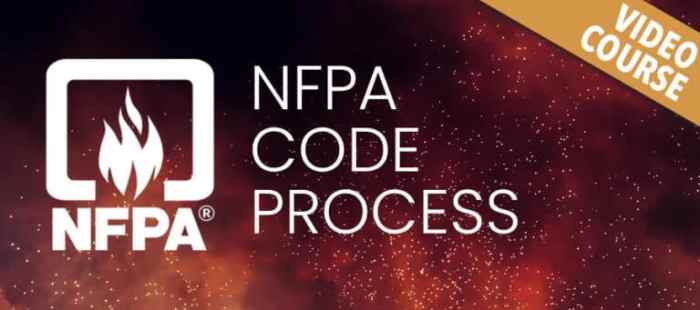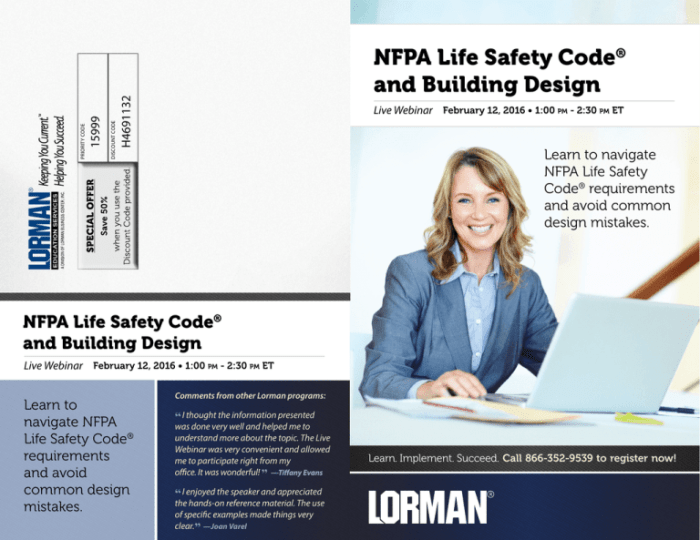The NFPA Model Code of Ethics and Professional Responsibility provides a comprehensive framework for ethical conduct in the fire protection field. This code establishes core principles, Artikels professional responsibilities, and addresses emerging ethical issues, ensuring that professionals maintain the highest standards of integrity and competence.
Adhering to these ethical guidelines is crucial for fire protection professionals to fulfill their responsibilities to the public, clients, and colleagues, ultimately enhancing the safety and well-being of communities.
1. Introduction: Nfpa Model Code Of Ethics And Professional Responsibility
The NFPA Model Code of Ethics and Professional Responsibility provides a comprehensive framework for ethical conduct in the fire protection field. It establishes core principles and guidelines to assist professionals in making ethical decisions and fulfilling their responsibilities to the public, their clients, and their colleagues.
Ethical guidelines are essential for professionals in the fire protection field because they ensure that individuals act in a responsible and ethical manner, promoting public safety and maintaining the integrity of the profession.
2. Principles of Ethics

The NFPA Model Code identifies several core principles of ethics, including:
- Integrity:Acting with honesty and trustworthiness in all professional interactions.
- Objectivity:Maintaining impartiality and avoiding conflicts of interest.
- Competence:Possessing the necessary knowledge, skills, and experience to perform professional duties.
- Confidentiality:Respecting the privacy of clients and maintaining the confidentiality of sensitive information.
- Professionalism:Adhering to high standards of conduct and maintaining a positive reputation for the profession.
Ethical dilemmas in the fire protection field can arise when professionals face conflicting obligations or when there is uncertainty about the appropriate course of action. For example, a fire protection engineer may be faced with the decision of whether to approve a building design that meets minimum safety standards but may not provide the highest level of protection possible.
3. Professional Responsibilities
Fire protection professionals have a number of responsibilities, including:
- To the public:Protecting the public from fire and related hazards.
- To their clients:Providing competent and ethical services, acting in their best interests, and maintaining confidentiality.
- To their colleagues:Cooperating with other professionals, sharing knowledge and expertise, and maintaining a positive work environment.
Maintaining confidentiality is particularly important in the fire protection field, as professionals often have access to sensitive information about buildings and occupants. Avoiding conflicts of interest is also crucial, as professionals must not allow their personal or financial interests to influence their professional judgment.
4. Enforcement and Interpretation
The NFPA Model Code of Ethics is not a legal document and does not have any direct enforcement mechanisms. However, it is expected that professional organizations and licensing boards will use the code as a basis for disciplinary actions against members who violate its provisions.
Interpreting and applying the NFPA Model Code of Ethics in practical situations can be challenging. Professionals should seek guidance from their professional organizations and licensing boards when faced with ethical dilemmas.
5. Case Studies and Examples

Case studies and examples can help illustrate the application of the NFPA Model Code of Ethics in real-world scenarios. For example, a case study could involve a fire protection engineer who is faced with the decision of whether to approve a building design that meets minimum safety standards but may not provide the highest level of protection possible.
The engineer must weigh the potential risks and benefits of the design and make a decision that is in the best interests of the public.
6. Emerging Ethical Issues
The fire protection field is constantly evolving, and new ethical issues are emerging all the time. For example, the use of artificial intelligence (AI) in fire protection systems raises questions about accountability, liability, and data privacy. Professionals must be aware of these emerging issues and be prepared to address them in an ethical manner.
7. Best Practices for Ethical Conduct

Fire protection professionals can maintain ethical conduct throughout their careers by following a few best practices:
- Continuing education:Staying up-to-date on the latest fire protection technologies and best practices.
- Self-reflection:Regularly examining their own ethical values and motivations.
- Peer support:Seeking advice and support from colleagues when faced with ethical dilemmas.
By following these best practices, fire protection professionals can ensure that they are acting in an ethical and responsible manner.
Answers to Common Questions
What is the purpose of the NFPA Model Code of Ethics and Professional Responsibility?
The code provides ethical guidelines for fire protection professionals, ensuring they maintain integrity, competence, and professionalism in their work.
What are the core principles of ethics Artikeld in the code?
The code emphasizes principles such as honesty, integrity, confidentiality, objectivity, and accountability.
What are the professional responsibilities of fire protection professionals according to the code?
Professionals have responsibilities to the public, clients, colleagues, and the profession, including maintaining confidentiality, avoiding conflicts of interest, and acting competently.
How is the code enforced?
Enforcement mechanisms vary depending on the organization or jurisdiction, but may include disciplinary actions or peer review.